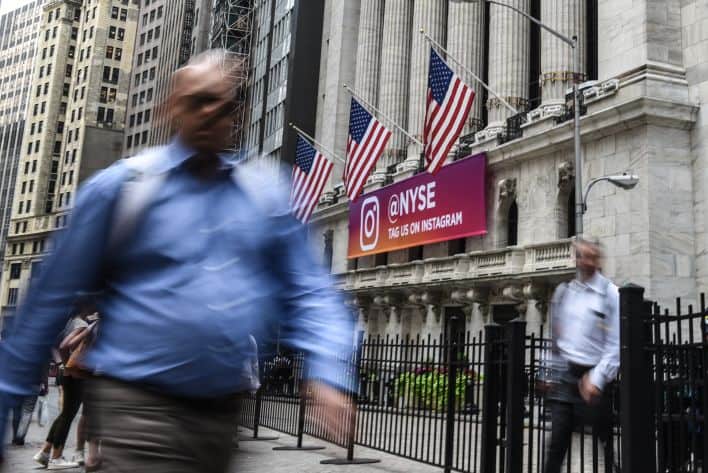
The U.S. stock market has been partying all throughout July, and a hangover is coming.
That is according to analysts at Morgan Stanley, who said that Wall Street’s rally is showing signs of “exhaustion,” and that with major positive catalysts for trading now in the rearview mirror, there’s little that could continue to propel equities higher.
“With Amazon’s strong quarter out of the way, and a very strong 2Q GDP number on the tape, investors were finally faced with the proverbial question of ’what do I have to look forward to now?’ The selling started slowly, built steadily, and left the biggest winners of the year down the most. The bottom line for us is that we think the selling has just begun and this correction will be biggest since the one we experienced in February,” the investment bank wrote to clients.
The decline “could very well have a greater negative impact on the average portfolio if it’s centered on tech, consumer discretionary and small-caps, as we expect.”
Check out: This ‘prophet of doom’ predicts stock market will plunge more than 50%
A correction is technically defined as a decline of at least 10% from a recent peak. Both the Dow Jones Industrial Average DJIA, -0.57% and the S&P 500 SPX, -0.58% corrected in early February, on concerns that inflation was returning to markets. While the Dow remains in correction territory—meaning it hasn’t yet risen 10% from its low of the pullback—the S&P exited just last week, following its longest stint in correction territory since 1984. The Nasdaq Composite Index COMP, -1.39% never fell into correction.
Equities have done well of late, with the Dow up 4.3% in July. The S&P 500 has gained 3.1% in the month while the Nasdaq has advanced 1.6%, hitting multiple records along the way, though it has stumbled badly in the past three sessions.
Much of the rally has come on the second-quarter earnings season, which has both shown strong growth and featured a high number of companies topping analyst expectations. While there were some high-profile disappointments, including from Netflix Inc. NFLX, -5.70% and Facebook Inc. FB, -2.19% —which suffered its biggest one-day drop ever after its results—market participants have generally looked past them.
“We must admit, the market sent some misleading signals over the last few weeks by limiting the damage to the broad indices when Netflix and Facebook missed. We believe this simply led to an even greater false sense of security in the market,” wrote the team of Morgan Stanley analysts, led by Michael Wilson, the firm’s chief U.S. equity strategist. Both Facebook and Netflix’s shares fell into bear-market territory on Monday, defined as a drop of at least 20% from a recent peak.
The firm forecast “a rolling bear market,” during which “every sector in the S&P 500 has gone through a significant derating” with the exception of tech and consumer discretionary. Those two sectors have contributed the bulk of the market’s advance in 2018; tech has risen 12.5% while the discretionary sector—boosted by Amazon and Netflix, both of which are up more than 50% year-to-date—is up 12.8%.
That these two industry groups haven’t fallen much doesn’t mean they won’t, Morgan Stanley warned.
“While it is possible tech and consumer discretionary stocks won’t experience the derating witnessed in other cyclical sectors, we think it is unlikely and are only emboldened by the misses from Facebook and Netflix and the price action last week,” they said.
“We recognize that money can also move from these sectors to others thereby leaving the S&P 500 around current levels rather than falling 10% as we expect,” they said.
























